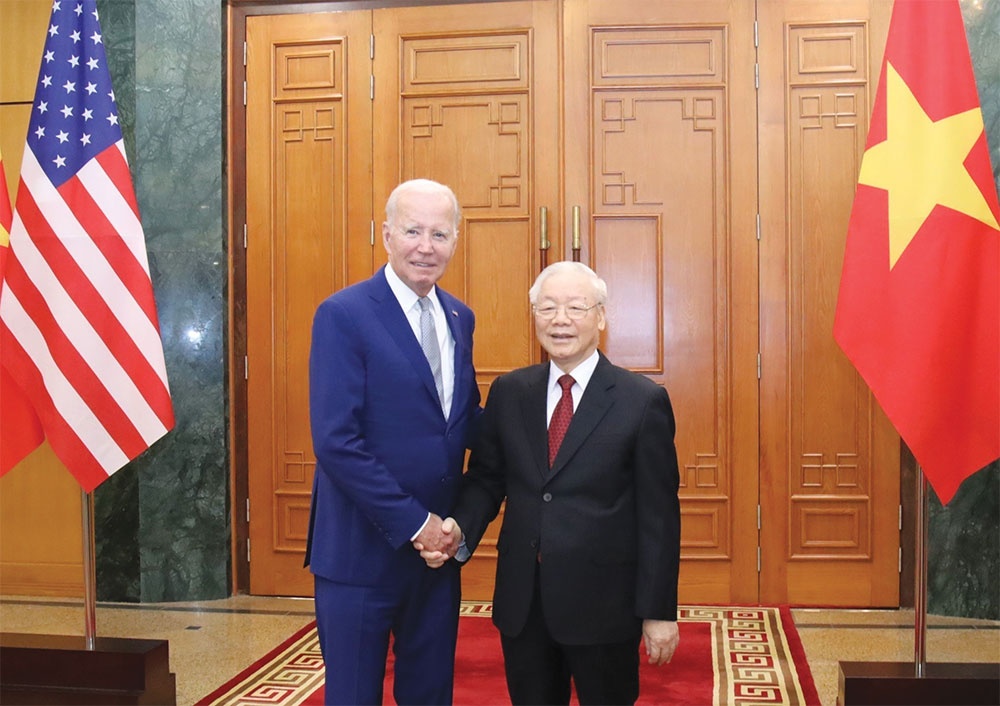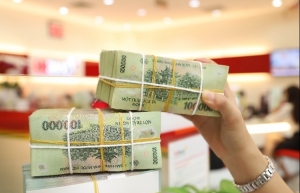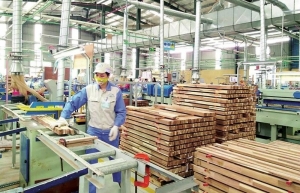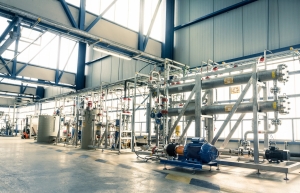US and Vietnam stand together for growth
 |
| US President Joe Biden with Vietnam’s Party General Secretary Nguyen Phu Trong, photo VNA |
During a historic state visit to Hanoi, US President Joe Biden and Vietnam’s Party General Secretary Nguyen Phu Trong on September 10 elevated Vietnam-US relations from a comprehensive partnership to a comprehensive strategic partnership for the purposes of peace, cooperation, and sustainable development.
“Today, we can trace a 50-year arc of progress in the relationship between our nations from conflict to normalisation. This is a new, elevated status that will be a force for prosperity and security in one of the most consequential regions in the world,” stated President Biden. “We’ve elevated our cooperation directly to the Vietnamese’s highest tier of partnership, referred to as the Comprehensive Strategic Partnership. That means the US has strengthened our ties with another critical Indo-Pacific partner.”
According to the White House, the unprecedented elevation of ties between the two countries, moving from a comprehensive partnership established in 2013 to a comprehensive strategic partnership, was the result of intense efforts by both governments to establish and build mutual understanding and to chart a forward-looking path towards the opportunities and challenges in a rapidly evolving world.
The new cooperation framework will be focused on 10 pillars: politics and diplomacy; economic, trade, and investment; sci-tech, innovation, and digitalisation; education and training; climate, energy, environment, and health; addressing war legacies; culture, people-to-people ties, sports, and tourism; defence and security; protection of human rights; and coordination on regional and global issues.
Vietnam and the US will also negotiate a multi-year plan of action that includes specific goals and objectives that will be monitored.
Intensifying economic ties
In elevating their partnership, the US and Vietnam reaffirm a shared commitment to regional prosperity through improved economic cooperation. With Vietnam, the US will drive new investments through the Partnership for Global Infrastructure by strategically deploying more public capital to better mobilise financing and expertise from the private sector to scale these investments for the years to come.
The US intends to do this through a number of activities. For example, regarding agricultural trade expansion, building on recent announcements that market access was granted to US grapefruit and Vietnamese pomelos, the two countries anticipate market access for additional agricultural products will soon follow.
The US in October 2022 allowed Vietnam to export fresh grapefruits to its market with stringent requirements on food safety and hygiene. Grapefruit has become the seventh Vietnamese fruit to be sold in the US, after mango, longan, litchi, dragon fruit, rambutan, and star apple.
Alexis Taylor, Under Secretary of Trade and Foreign Agricultural Affairs at the US Department of Agriculture, said that Vietnam and the US are now discussing how to export the former’s coconut and passion fruit to the latter. In principle, exportation of fresh fruits would need to meet strict requirements in food safety and hygiene in order that there will be no strange germs that can penetrate the US market from Vietnam and vice versa.
It is calculated that the US market needs to consume about 12 million tonnes of fruits a year. Domestically produced products can meet 70 per cent of demand, and the remaining must be imported.
Moreover, the US will increase access to capital for underserved borrowers via new projects by the US International Development Finance Corporation, such as Tien Phong Commercial Joint Stock Bank ($100 million), Vietnam Prosperity Joint Stock Commercial Bank ($300 million), and the Beacon Fund ($50 million), that expands lending opportunities to small- and medium-sized enterprises that are women-owned or operated, and/or climate-focused.
These efforts help address issues such as the financing gap for female entrepreneurs, support weather-related adaptation and mitigation measures, promote sustainable agriculture, and improve energy efficiency through the deployment of renewable energy sources, according to the White House.
Reinforcing business links
Statistics indicate that two-way trade between Vietnam and the US has increased from $450 million in 1995 when the two countries established their diplomatic relations, to $123.7 billion last year, and $71.6 billion in the first eight months of this year.
This figure is set to continue soaring thanks to new and expanded initiatives set up last week.
For instance, Boeing and Vietnam Airlines signed a multi-billion-dollar proposal acceptance to purchase 50 Boeing 737 MAX aircraft that will benefit both countries by supporting US manufacturing jobs and providing world-class aircraft to support Vietnam’s growing travel and tourism industry as they aspire to become a leading aviation hub. This deal, reported to cost up to $10 billion, will support over 33,000 direct and indirect jobs across the US.
Elsewhere, Arizona-based Amkor Technology will announce the commencement of operations at its state-of-the art factory in Vietnam’s northern province of Bac Ninh in October, with totalled registered capital of $1.6 billion. California-based Synopsys is launching a semiconductor design and incubation centre together with Saigon High-Tech Park. California-based Marvell will announce that it will establish a world-class semiconductor design centre in Ho Chi Minh City.
Vietnam and the US will also further technology partnerships. Microsoft and Truthing Social will announce an agreement to develop a generative AI-based solution tailored for Vietnam and emerging markets. NVIDIA is partnering with FPT, Viettel, and Vingroup to deploy AI in the cloud, automotive, and healthcare industries.
Meta Platforms and the Vietnam National Innovation Centre will announce the Vietnam Innovation Challenge, a programme to promote digital transformation among smaller businesses.
Meanwhile, Vietnam’s VinFast will continue to progress on the construction of its $4 billion electric vehicle manufacturing facility in North Carolina; 3M concluded an agreement with Vietnam’s Ministry of Transport to improve traffic safety; and New York-based Nobu Hospitality will announce a partnership with Viet Capital Real Estate to bring the first ever Nobu hotel, residences, and restaurant to Vietnam.
Furthermore, Seattle-based port operator SSA Marine and Vietnamese private company Gemadept will announce their intent to collaborate on strategic port projects in southern Vietnam, including their joint interest in developing the proposed $6.7 billion Cai Mep Ha Logistics Centre.
Massachusetts-based Australis Aquaculture, meanwhile, will sign an MoU with the south-central province of Khanh Hoa to invest an additional $100 million to expand its sustainable aquaculture operations in Van Phong Bay. United Beacon Asia Media will launch the inaugural issue of Bloomberg BusinessWeek Vietnam next month.
Crane Currency has also inked an MoU with Vietnam-based Q&T Hi-Tech Polymer Co. Ltd. to help the State Bank of Vietnam secure Vietnam’s next generation of banknotes.
According to Vietnam’s Ministry of Planning and Investment, cumulatively as of August 20, total US registered investment capital in Vietnam reached nearly $11.8 billion for nearly 1,300 valid projects, making the US the 11th largest foreign investor in Vietnam.
In the period from January to August 20 of this year, the total newly registered and newly added capital, stake acquisitions, and capital contributions from US investors in Vietnam hit $490 million – including 72 new projects registered with $75 million. This has made the US the eighth-largest foreign investor in Vietnam.
| The two leaders reaffirmed the importance of economic, trade, and investment cooperation and innovation-driven inclusive economic growth as the core foundations and sources of momentum in the bilateral relationship. Both sides pledged to create stronger conditions and facilitate the further opening of markets for each other’s goods and services, support trade and economic policy, and regulatory measures to achieve this aim; and to address issues such as market access barriers via the Trade and Investment Framework Agreement. The US applauds Vietnam’s progress in significant market-based economic reforms, and reaffirms its enthusiasm and commitment for a broad, strengthened, supportive, and constructive engagement with Vietnam in its transition to a market economy, and subsequently to market economy country status, under US law. The US noted Vietnam officially requested the review of its market economy status on September 8. The US will review Vietnam’s request as expeditiously as possible, in accordance with US law. The US appreciates Vietnam’s ongoing efforts to further modernise and enhance the transparency of its monetary policy and exchange rate management framework, to promote macroeconomic stability, and to ensure the safety and soundness of the banking system. (Excerpt from joint leader statement on elevating US-Vietnam relations to a comprehensive strategic partnership) |
 | US and Vietnam aligning on monetary philosophy The United States and Vietnam are making joint efforts to ensure market fairness and macroeconomic stability, therefore enhancing bilateral economic links with monetary and exchange-rate perspectives. |
 | US and Vietnam agree to end investigation into timber trade The United States and Vietnam have reached an agreement on illegal logging and timber trade that will avoid hefty tariffs on Vietnamese timber exports. |
 | US and Vietnam launch initiative on private sector sustainable growth The United States Mission to Vietnam, through the US Agency for International Development (USAID), and Vietnam’s Ministry of Planning and Investment (MPI) has announced the launch of a new initiative to spur private sector-driven sustainable and inclusive growth. |
What the stars mean:
★ Poor ★ ★ Promising ★★★ Good ★★★★ Very good ★★★★★ Exceptional
Related Contents
Latest News
More News
- SK Innovation-led consortium wins $2.3 billion LNG project in Nghe An (February 25, 2026 | 07:56)
- THACO opens $70 million manufacturing complex in Danang (February 25, 2026 | 07:54)
- Phu Quoc International Airport expansion approved to meet rising demand (February 24, 2026 | 10:00)
- Bac Giang International Logistics Centre faces land clearance barrier (February 24, 2026 | 08:00)
- Bright prospects abound in European investment (February 19, 2026 | 20:27)
- Internal strengths attest to commitment to progress (February 19, 2026 | 20:13)
- Vietnam, New Zealand seek level-up in ties (February 19, 2026 | 18:06)
- Untapped potential in relations with Indonesia (February 19, 2026 | 17:56)
- German strengths match Vietnamese aspirations (February 19, 2026 | 17:40)
- Kim Long Motor and AOJ Suzhou enter strategic partnership (February 16, 2026 | 13:27)

 Tag:
Tag:




















 Mobile Version
Mobile Version